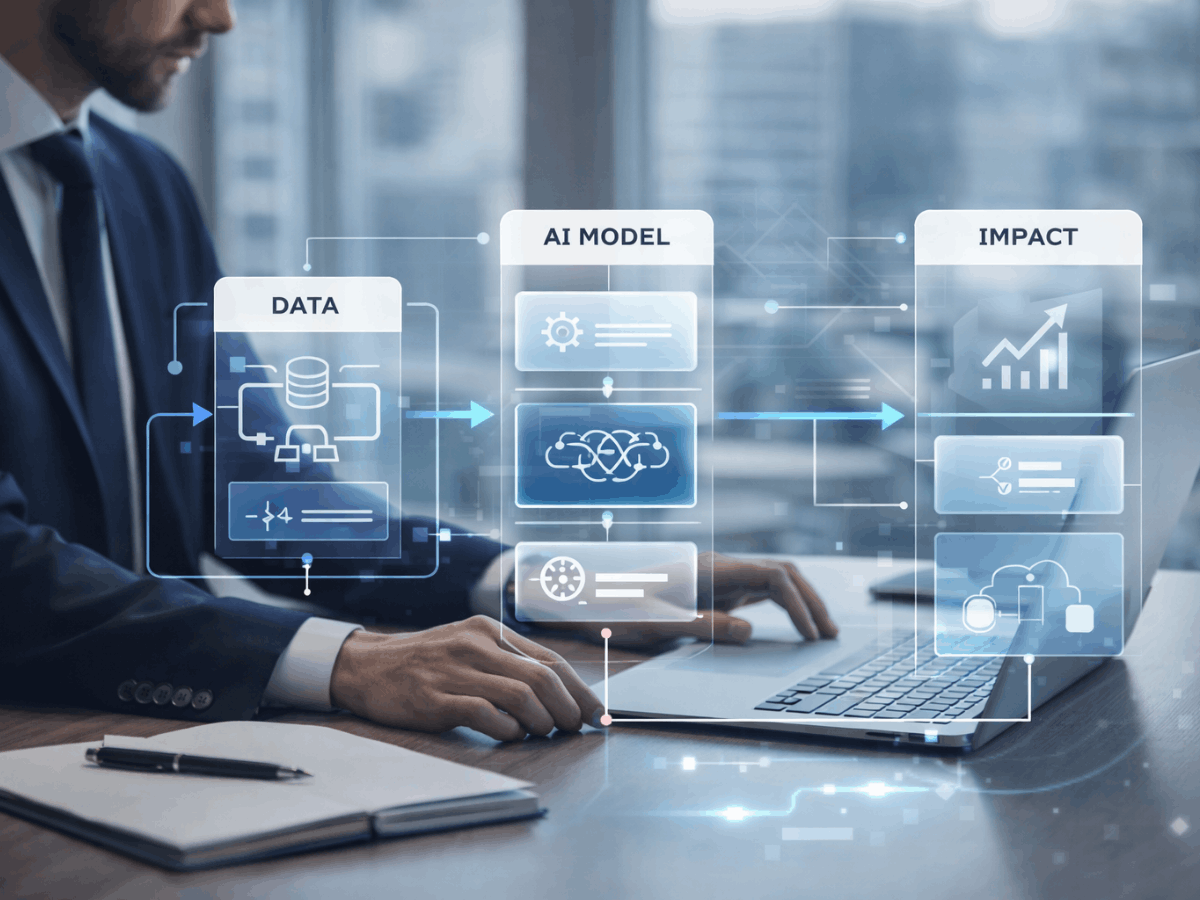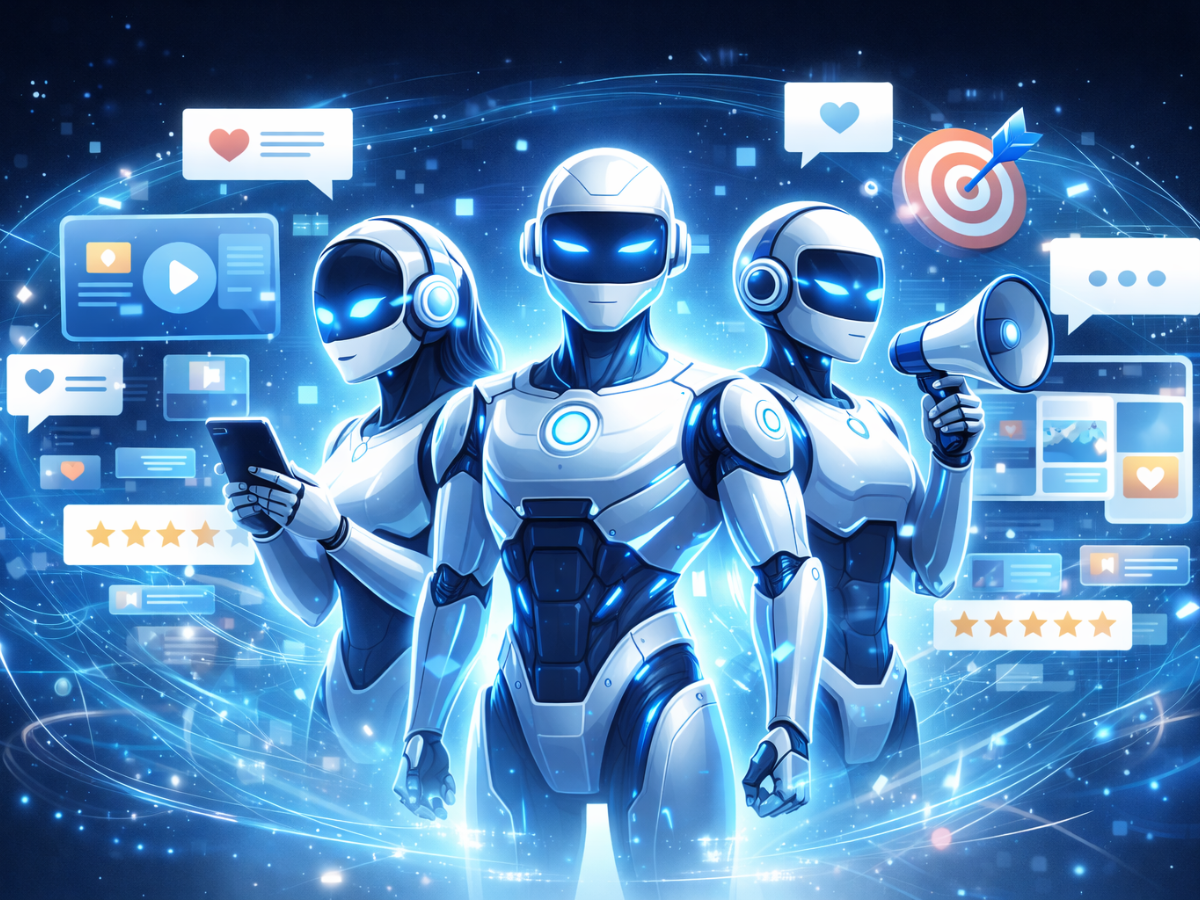The Role of AI in Marketing Is Bigger Than You Think


Why AI in Marketing Isn’t Just a Trend
AI is moving fast—and in marketing, it’s already reshaping the way teams operate. What used to take entire departments now takes a few well-structured prompts. Content generation, audience targeting, campaign testing—automated. But here’s the catch: that’s just the beginning.
The real role of AI in marketing goes way beyond automation. It’s changing how teams think, how leaders make decisions, and what it means to actually grow a brand. The bar for “good enough” is gone. What used to be hard is now expected—and what’s next will demand even more.
This blog breaks down what AI is really doing to marketing today, what it can’t replace, and why the smartest teams are using it to accelerate—not outsource—their strategy.
Automation Was Just the Starting Point
When most people think about the role of AI in marketing, automation is the first thing that comes to mind. Tools that generate blog drafts, write email subject lines, schedule social posts, or segment audiences have made day-to-day marketing more efficient. But that’s just scratching the surface.
AI isn't just about saving time on routine tasks—it’s about unlocking capabilities that weren’t possible before. We're no longer talking about automating checklists. We're talking about real-time personalization, predictive insights, and creative ideation at scale. And with 46% of people now saying they trust AI, more teams are exploring how to put it to work.
But here’s the shift: automating “easy” tasks isn’t what makes marketing teams competitive. Knowing how to strategically use AI to drive performance and make smarter decisions is the real differentiator. Many teams are already exploring the best AI tools for ecommerce to move faster, personalize at scale, and gain a real edge in their marketing efforts.
Marketing Leaders Now Need to Think Like System Builders
Artificial intelligence has already redefined how marketing departments operate. With theU.S. AI market projected to reach nearly $74 billion, AI adoption is accelerating a shift—not just in what gets done, but in how marketing professionals lead.
It's no longer enough to approve social media posts or sign off on digital ads. Today’s leaders need to understand how machine learning fits into their marketing platforms, how AI systems process customer data, and how to apply those outputs in real time.
Great CMOs aren’t becoming engineers—but many marketers are learning to think more like builders. They understand how to connect software platforms, leverage AI capabilities, and streamline processes to maximize performance.
That shift—from campaign manager to systems thinker—is what separates effective marketing strategies from outdated ones.
How CMOs Can Use AI to Lead Smarter

Use AI to Kickstart Strategy
Generative AI can help spark initial ideas for campaigns, content marketing, or customer engagement. AI-powered tools can generate outlines, predict trends based on historical data, and surface creative angles—freeing teams from repetitive tasks and helping them create content faster.
Turn Customer Data Into Actionable Insights
AI marketing isn't just about automating tasks—it’s about surfacing what matters. Tools with predictive analytics and natural language processing can identify shifts in consumer behavior, audience segmentation patterns, and customer preferences. CMOs can use these insights to shape smarter marketing programs and fine-tune target audiences.
Align Cross-Functional Marketing Efforts
Modern marketing organizations can’t operate in silos. AI tools make it easier to unify marketing analytics, customer interactions, and feedback loops across channels—from email to e-commerce sites. CMOs can lead the charge in adopting AI to enhance customer experience and improve how teams collaborate.
Streamline Without Losing Strategy
Marketing tools that automate social media management, analyze sentiment, or generate SEO-ready content should support—not replace—strategy. CMOs can adapt these tools around team strengths to maintain a competitive advantage while reducing friction in execution.
What AI Can’t Replace: Human Judgment and Strategy
AI is transforming digital marketing, but some roles still require human input, creativity, and experience. Even as 74% of business owners say they see tools like ChatGPT playing a role in customer interactions—especially through chatbots—there are limits to what AI can replace.
Here’s what even the most advanced AI technology can’t replicate:
- Strategic leadership: AI tools can support marketing campaigns, but setting direction, aligning teams, and making high-stakes calls still requires people with domain knowledge and technical expertise.
- Emotional connection: Sentiment analysis can flag tone, but only people can translate customer feedback into actions that enhance customer engagement and build long-term trust.
- Original storytelling: AI can help with content creation, but it lacks the cultural awareness and brand voice needed to craft narratives that resonate deeply with real audiences.
- Creative judgment: Generating options is easy. Knowing which message will land—and which could backfire—still depends on lived experience, not pattern recognition.
- Contextual decision-making: AI doesn’t grasp nuance in customer behavior, purchase history, or real-time shifts in consumer data. CMOs and marketing professionals still lead when interpretation matters.
- Vision and adaptability: AI isn’t designed for big-picture thinking or reacting to future trends. It can process vast amounts of data but can’t anticipate how brand identity, data privacy, or search engine optimization strategies should evolve.
- Cross-functional influence: Incorporating AI into marketing technologies, workflows, or programmatic advertising still requires human leadership to manage ai integration, avoid misuse, and maintain ethical standards.
While automation is powerful, it’s most effective when guided by humans who know how to use customer insights—not just surface them. AI can streamline data entry and support customer segmentation, but it can’t replace the people who turn that data into action. That’s why strategies like combining demand generation and account-based marketing are so effective—they rely on both smart technology and strategic human input to move high-value prospects through a double funnel.
AI Isn’t Replacing Marketers—It’s Rewriting the Job
AI is changing the marketing game—but it’s not replacing it. From automating repetitive tasks to unlocking deeper customer insights, the impact of AI is real, fast, and still evolving. But smart marketing isn’t just about automation—it’s about applying judgment, creativity, and leadership to what machines can’t fully understand.
For CMOs, founders, and growth-focused teams, this means two things: you can move faster than ever before, and you need the right people to guide the strategy behind that speed. Many are turning to the best fractional CMO services to bring in flexible, high-level marketing leadership without committing to a full-time hire.
Bringing AI into marketing isn’t just about using tools—it’s about rethinking how your teams operate, where to spend time, and how to keep customers at the center of every decision. That’s where modern marketing leadership thrives.
Let AI handle the easy. Let humans lead the meaningful.








